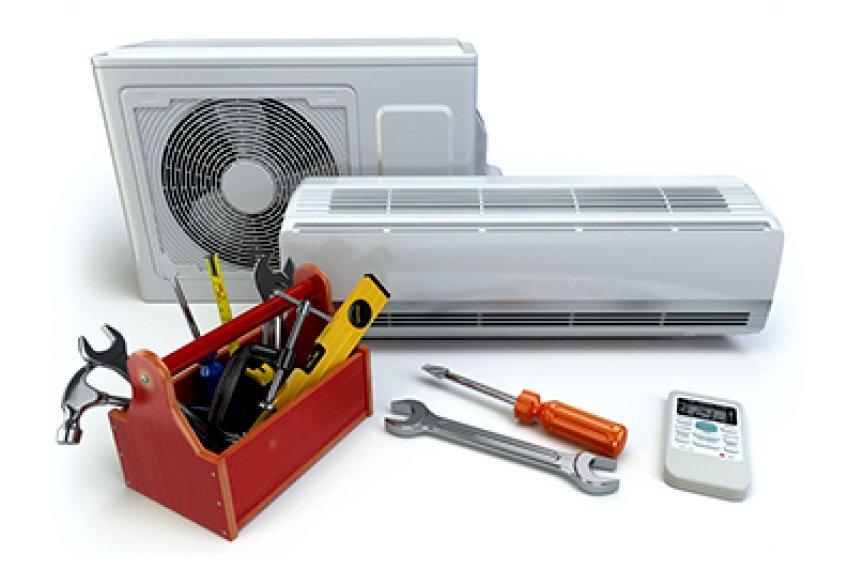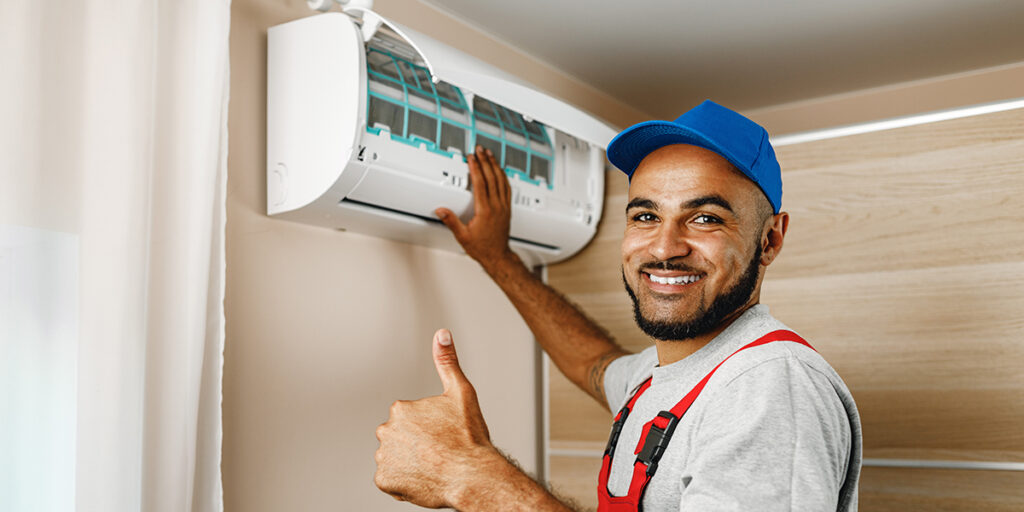Everything about Ac Air Conditioner Repair
Everything about Ac Air Conditioner Repair
Blog Article
Air Conditioner Repair Near Me Things To Know Before You Buy
Repair Air Conditioner Near Me: Specialist Cooling System Remediation Ensures Your Home Stays Comfortable All Year Round
Types of Air Conditioner Systems
When tackling air conditioning repair work, understanding the type of a/c system you're dealing with can save time, money, and irritation. Ever questioned why some systems cool a space faster than others? Or why particular systems appear to break down more frequently? Let's peel back the layers.
Central Air Conditioning
Air Conditioning Repair Fundamentals Explained
Imagine a cool breeze flowing through a whole home, whispering comfort into every corner. Central air systems do precisely that. They use a network of ducts to distribute cooled air, counting on a compressor and condenser outside, matched with an evaporator get more info coil inside. However when this complex monster fails, identifying the problem can be like finding a needle in a haystack.
Split Systems

Split systems are a popular choice for numerous homes-- part indoor unit, part outdoor compressor. They provide flexibility and performance, but their double nature implies repair can involve either component. Have you ever heard a strange sound outside your home just to find the indoor unit isn't cooling? That's a classic indication of a split system problem.
What Does Air Conditioning Repair Near Me Mean?
Window Units
These compact warriors fight summertime heat by fitting comfortably into a window frame. They combine all parts into a single box. Their simplicity typically implies less repair headaches, however neglecting filters or enabling debris accumulation can cause decreased efficiency or breakdowns.
Ductless Mini-Splits
See This Report on Ac Repair Near Me
Ductless systems bypass ductwork entirely, making them ideal for homes without existing ventilation. They're peaceful, effective, and remarkably durable. Yet, when repairs are needed, technicians must be skilled at handling refrigerant lines and electrical connections-- no little accomplishment.
Quick Reference Table
| Type | Key Includes | Common Repair Work Issues |
|---|---|---|
| Central Air | Ductwork, whole-house cooling | Duct leakages, compressor failure |
| Split System | Indoor & & outside systems | Refrigerant leakages, fan motor problems |
| Window System | All-in-one, simple setup | Dirty filters, electrical faults |
| Ductless Mini-Split | No ducts, zoned cooling | Line leaks, sensing unit breakdowns |
The Of Fix Air Conditioner
Deciphering one of the most Regular AC Predicaments
Have you ever questioned why your air conditioning system suddenly stops cooling during a sweltering afternoon? One common culprit is an unclean or clogged up air filter. This sneaky bad guy restricts airflow, requiring your system to work overtime, which not just reduces efficiency but can also cause premature breakdowns. Envision attempting to breathe through a scarf soaked in dust-- it's tiring!
Another regular misstep is refrigerant leaks. These invisible leaks don't simply decrease cooling power but can likewise damage the compressor, the heart of your a/c system. How frequently do you look for uncommon hissing sounds or ice formation on the coils? Capturing these signs early can save you from costly repair work down the line.
Beyond the Essentials: Lesser-Known Issues
The Facts About Ac Fixing Revealed
In some cases, the thermostat itself is the troublemaker. Miscalibrated or malfunctioning thermostats send mixed signals, causing the air conditioning to cycle unpredictably. Ever skilled your air conditioning switching on and off in rapid succession? That's called brief biking, a sly efficiency drainer that can break components much faster than you 'd anticipate.
Electrical issues, such as used electrical wiring or a malfunctioning capacitor, may prowl underneath the surface. AC Air Conditioner Repair. These often manifest as AC systems stopping working to begin or unexpectedly shutting down. A professional eye understands to evaluate these parts with precision tools, something a casual glance won't expose
Expert Tips for Diagnosing Common Air Conditioner Issues
An Unbiased View of Ac Repair
- Check and change air filters regularly-- every 1 to 3 months depending on usage and environment.
- Listen for uncommon sounds like rattling or buzzing that might indicate loose parts or electrical faults.
- Examine the outside unit for particles or obstructions that hinder airflow and cause overheating.
- Search for frost buildup on evaporator coils, a tip towards refrigerant issues or air flow restrictions.
- Check the thermostat settings and recalibrate if the temperature readings feel off.
Quick Recommendation Table: Symptoms & & Probable Triggers

| Sign | Probable Cause | Specialist Idea |
|---|---|---|
| Warm air blowing | Low refrigerant or filthy coils | Tidy coils and check for leakages instantly |
| Brief biking | Thermostat issues or oversized system | Adjust thermostat settings and seek advice from sizing guidelines |
| System will not start | Electrical faults or capacitor failure | Test wiring and change capacitors as required |
| Water leakage | Obstructed drain line or frozen evaporator | Clear drain lines and examine for coil icing |
DIY Air Conditioner Maintenance Tips
Get This Report on Ac Repair
Ever noticed your ac system sputtering like an old engine on a hot summer day? Neglecting subtle indications frequently indicates more than simply a sweaty afternoon-- it's a start to unforeseen AC repair expenses. What if you could catch those whispers before they turn into wails? Regular do it yourself upkeep can be your first line of defense.
Easy Actions to Keep Your Air Conditioner Running Efficiently
A Biased View of Fix Air Conditioner
- Clean or Change Filters: A stopped up filter is like attempting to breathe through a scarf. Every 1-3 months, examine and swap out your filters. It improves airflow and effectiveness, avoiding compressor strain.
- Inspect the Condenser Coils: Dust and particles function as invisible blankets smothering your system's cooling power. Gently brush or vacuum the coils, however avoid harsh chemicals that might deteriorate the metal.
- Inspect the Drain Line: When was the last time you looked at your drain pan? A clogged up drain can trigger water leaks and foster mold development. Flushing it with a vinegar solution monthly keeps the circulation clear.
- Seal and Insulate: Are your ductworks whispering leakages? Sealing gaps with mastic or foil tape increases efficiency and reduce uneven cooling.
Pro Tips Beyond the Fundamentals
- Step your unit's voltage to capture subtle electrical wear before it triggers huge problems.
- Listen for uncommon hums or rattles-- these acoustic breadcrumbs typically signal loose parts or stopping working motors.
- Keep outdoor units shaded but make sure at least two feet of clearance around them for optimum air flow.
Ask yourself: Are you hearing your a/c's quiet SOS or simply awaiting it to scream? Requiring time for DO IT YOURSELF AC maintenance changes reactive repair into proactive care, saving sweat, tension, and yes, cash.
Repair Air Conditioner Near Me Things To Know Before You Get This
Why Know-how in AC Repair Work Matters
Picture this: your air conditioning system sputters and groans throughout a scorching afternoon, leaving you sweltering inside your home. Would you rely on a novice fumbling with fragile parts, or would you look for the reassurance of a expert a/c specialist!.?.!? The intricacies of contemporary air conditioning systems require accuracy and experience. A minor mistake can intensify a minor breakdown into a costly catastrophe.
The Single Strategy To Use For Air Conditioner Repair Near Me
Unseen Intricacies Behind the Cool Breeze
Numerous undervalue the layers concealed below the sleek outside of an a/c unit - Repair Air Conditioner Near Me. From refrigerant leakages that silently drain efficiency to defective thermostats that misread temperature levels, these problems require more than a fundamental toolkit. Experts possess a keen eye for diagnosing issues that balance house owners ignore
Important Tips for Selecting the Right Specialist
The Buzz on Ac Repair
- Certification and Training: Confirm credentials; a specialist trained in the newest a/c innovations is vital.
- Experience with Particular Systems: Not all a/c units are developed equivalent; find somebody knowledgeable about your design's quirks.
- Diagnostic Method: Competent professionals use sophisticated tools-- like electronic leak detectors and thermal imaging-- to pinpoint hidden faults.
What to Anticipate from a Pro's Diagnostic Process
| Action | Function | Professional Insight |
|---|---|---|
| Visual Assessment | Determine apparent wear or damage | Look for deterioration or uncommon sounds-- a dead giveaway often ignored |
| Pressure Evaluating | Discover refrigerant leaks | Subtle pressure drops can mean micro leakages undetectable to the naked eye |
| Electrical Evaluating | Make sure circuit stability | Loose connections can simulate serious mechanical failures |
See This Report on Air Conditioning Repair
Why Do It Yourself Often Falls Short
Appealing as it is to play with your air conditioner unit, do it yourself repairs often miss out on the root cause. Topping off refrigerant might briefly cool your space however overlooks leaks that aggravate over time. Professional service technicians do not just spot symptoms; they pursue the underlying mechanical and electrical faults that sap performance.
An Unbiased View of Ac Fixing
Questions to Ask Before Working with
- What diagnostic tools do you use to determine problems?
- Can you describe the repair procedure and anticipated results?
- Are you knowledgeable about the refrigerants compatible with my system?
- Do you follow safety protocols for handling electrical parts?